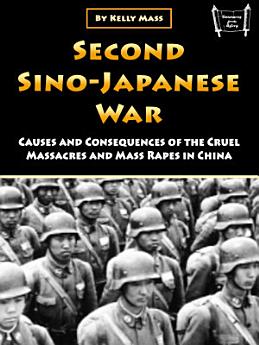Second Sino-Japanese War: Causes and Consequences of the Cruel Massacres and Mass Rapes in China
About this ebook
The political chaos that engulfed China during the warlord period from 1916 to 1928 created conditions that made Japanese expansion both possible and seemingly inevitable, as regional military commanders carved up the country into personal fiefdoms while the nominal central government in Beijing exercised little real authority beyond the capital city. This fragmentation reflected deeper problems in Chinese society and politics that included the absence of modern administrative institutions, the weakness of national consciousness among local populations more concerned with survival than abstract political loyalty, and the economic disruption caused by decades of civil war and foreign intervention. The warlords' constant warfare depleted China's resources while preventing the development of modern military forces capable of resisting foreign invasion, creating a vicious cycle of weakness that invited further foreign intervention and internal division.








